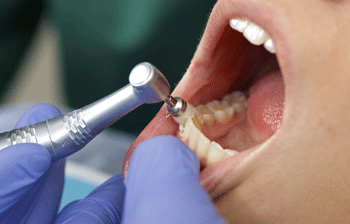May 28 2015
Leading scientists at the University of Sheffield have discovered nanotechnology could hold the key to preventing deep bone infections, after developing a treatment which prevents bacteria and other harmful microorganisms growing.

The pioneering research, led by the University of Sheffield’s School of Clinical Dentistry, showed applying small quantities of antibiotic to the surface of medical devices, from small dental implants to hip replacements, could protect patients from serious infection.
Scientists used revolutionary nanotechnology to work on small polymer layers inside implants which measure between 1 and 100 nanometers (nm) – a human hair is approximately 100,000 nm wide.
Lead researcher Paul Hatton, Professor of Biomaterials Sciences at the University of Sheffield, said: “Microorganisms can attach themselves to implants or replacements during surgery and once they grab onto a non-living surface they are notoriously difficult to treat which causes a lot of problems and discomfort for the patient.
“By making the actual surface of the hip replacement or dental implant inhospitable to these harmful microorganisms, the risk of deep bone infection is substantially reduced.
“Our research shows that applying small quantities of antibiotic to a surface between the polymer layers which make up each device could prevent not only the initial infection but secondary infection – it is like getting between the layers of an onion skin.”
Bone infection affects thousands of patients every year and results in a substantial cost to the NHS.
Treating the surface of medical devices would have a greater impact on patients considered at high risk of infection such as trauma victims from road traffic collisions or combat operations, and those who have had previous bone infections.
Professor Hatton added: “Deep bone infections associated with medical devices are increasing in number, especially among the elderly.
“As well as improving the quality of life, this new application for nanotechnology could save health providers such as the NHS millions of pounds every year.”
The study, funded by the European Commission and the UK Engineering and Physical Sciences Research Council, is published in Acta Biomaterialia.